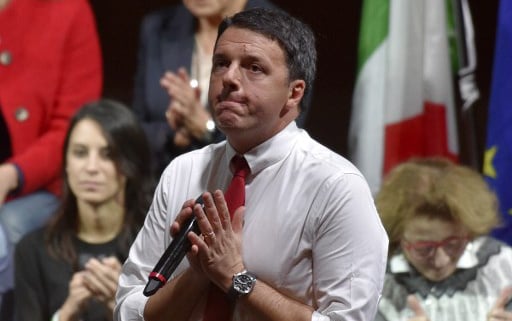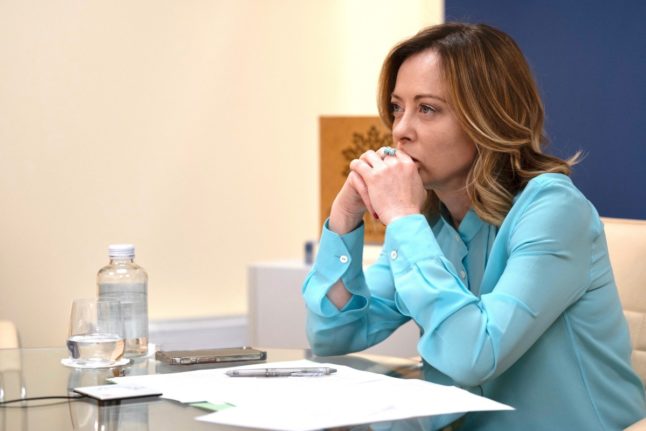Renzi has repeatedly promised to resign if his reforms – aimed at simplifying bureaucracy by changing Italy's 'bicameral' system – are rejected by the public on December 4th.
But amid mounting fears of political and economic instability if the 'No' camp wins, he faces increasing pressure to stay on, at least temporarily.
Final polls published before the blackout in the two weeks leading up to the referendum showed a convincing lead for 'No', but around a third of voters still undecided. Rallies for the 'No' campaign are continuing to attract huge turn-out, with organizers estimating that 50,000 voters turned up to the 'C'e chi dice No' (Some say 'no') event in Rome this weekend.
If the most recent polls are correct and Renzi is heading for defeat, it is likely that a technical government would be formed. This government would be tasked with a few key decisions, such as updating Italy's electoral law, before general elections could take place.
Britain's financial weekly The Economist publicly backed the 'No' vote last week, arguing that a technocratic government would allow Italy to “get back to real reforms”, while Renzi has argued that only a strong, elected government can provide Italy with much-needed stability.
He has repeatedly said that he is not interested in “treading water” or “playing games” by accepting a role in any technocratic government.
The 41-year-old politician has a reputation for impulsiveness, ever since he ousted former leader Enrico Letta to become prime minister, and he is known in Italy as the 'demolition man', so it is not surprising that he plans to leave if he is unable to implement his proposed changes.
He argues that he has “no need to add another line to my CV” and that a loss would not be a problem for him, “but for future generations of Italians, who would lose out on an opportunity”.
However, he is not obliged to step down. And while some of his opponents, particularly members of the far-right Northern League and Silvio Berlusconi's Forza Italia party, would likely demand a resignation, others are more pragmatic – particularly in the face of mounting fears over the effect of more instability on Italy's fragile economy.
Goldman Sachs and Banca D'Italia have raised fears about the negative impact of a 'No' victory on Italy's troubled banks, and the UK's Financial Times wrote at the weekend that up to eight of Italy's banks would be at risk of failure if the 'No' camp wins.
One of those would be the Banca Monte Paschi di Siena, the country's third-largest bank by assets, whose shareholders last week approved a €5 billion rescue plan to keep it afloat.
Economist Mario Monti, who led a technical government in Italy between 2011 and 2013 and is against the proposed reforms, said on Italian TV that he didn't see “any reason in the world” why Renzi should leave if defeated.
“I don't hope for or expect a technocratic government,” the economist said in an interview on SkyTg 24. “I expect that the next government will be led by Matteo Renzi.”
Other key political figures, including Industry Minister Carlo Calenda, told Reuters that they were in favour of Renzi staying on even if his reforms are not passed.
But publicly at least, Renzi remains stubborn.
“There's a risk of a technical government – that's clear,” the prime minister said at a campaign event in Turin. “But I can't prevent it; Italians have to do that by voting Yes.”



 Please whitelist us to continue reading.
Please whitelist us to continue reading.
Member comments